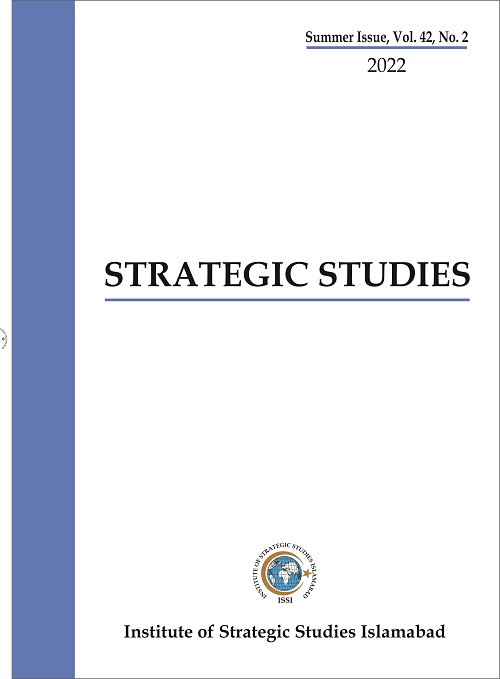Belt and Road Initiative in South Asia: Security Imperatives
Keywords:
Regional Security Complex Theory (RSCT), China Pakistan Economic Corridor (CPEC), Belt and Road Initiative (BRI), Regional Security Complex (RSC)Abstract
This paper aims to study the security of Belt and Road Initiative (BRI) in regional context, with special focus on China Pakistan Economic Corridor (CPEC).Security environment of Afghanistan still remains uncertain and volatile having a direct bearing on the security situation of Pakistan and CPEC. Contrary to expectations, Tehrik-i-Taliban Pakistan (TTP) continues to operate from its secure bases inside Afghanistan under the Taliban regime and expand its influence in the areas bordering Afghanistan. Indian opposition to CPEC is driven by multiple motives apart from being a perennial adversary of Pakistan and a strategic competitor of China. China’s central role in BRI and CPEC has ramifications from Indian perspective that is why it opposes BRI and CPEC. Bilateral relations of Pakistan and Iran has seen many ups and down, however, both countries have developed broad unanimity over Taliban regime in Afghanistan. Iran has indicated an interest in joining CPEC. BRI has further strengthened already deep ties between Pakistan and China. Following a qualitative approach and drawing on the Regional Security Complex Theory (RSCT), this study underscores the security challenge for BRI in the context of regional security environment.

Published
How to Cite
Issue
Section
Copyright (c) 2023 Strategic Studies

This work is licensed under a Creative Commons Attribution-NonCommercial 4.0 International License.



